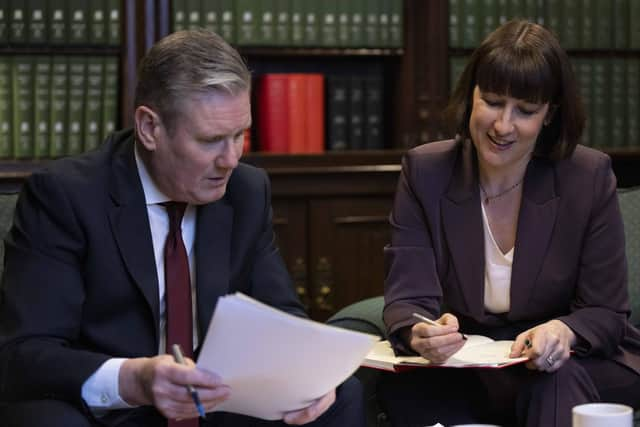UK Budget: Chancellor Jeremy Hunt's minor largesse cannot hide the country's problems – Brian Wilson
It was a confetti Budget, with minor largesse scattered around, though it was delivered with some panache. When the Tory cheers died down, the fundamentals had not changed and neither, I guess, will the polls. The economic baggage is just too heavy.
Usually at this stage of a parliament, a plausible claim can be made that things are getting better, enabling pre-election hand-outs. That matches neither lived experiences nor the fact that the UK economy has just entered “Rishi’s recession”, in Sir Keir Starmer’s phrase.
Advertisement
Hide AdAdvertisement
Hide AdMr Hunt did his best to disguise the uncomfortable fact that taxation is at record levels and still going up, which is not a great platform for a Tory chancellor. A 2p reduction in National Insurance was the headline but the £10 billion spending cuts to pay for it were bluffed through with hypotheticals that will remain unproven until after a general election.


Belated abolition of non-dom status
Saving billions through efficiencies within the NHS and other public services sounds an excellent idea but scarcely a new one. Starmer’s researchers had done well to track down a quote from Mr Hunt when he was Health Secretary promising a “paper-free NHS by 2018”. Even Mr Hunt, the Chancellor, had the grace to laugh.
We had a promise to “abolish non-dom status” (albeit in highly qualified form) which is to yield £2.8 billion a year, but not quite yet. At this point, it is necessary to be pretty dim not to ask why they didn’t do it before, instead of defending to the last ditch such an obvious abuse which benefits a Tory-donating minority. Fourteen years multiplied by £2.8 billion would have paid for a lot of operations.
Extending the windfall tax on North Sea oil and gas confirms how much political rhetoric is wasted on this subject – a trap into which the Scottish Tories have walked. The hard heads of the Treasury were unconvinced that the industry would be damaged and are likely to be right.
There are good things in every budget, regardless of party politics. The promised changes to child benefit rules are long overdue but again the question arises of why it has taken 14 years to sort them. And none of the Scottish communities, any more than elsewhere in the UK, will complain about direct funding though that too is confetti scattered around.
Starmer’s response on target
According to Mr Hunt, the Scottish Government will receive £300 million in Barnett consequentials and must now decide how to prioritise them. Surely the harsh treatment of local government and the 43 per cent SNP cut to the social housing budget cry out for some amelioration.
The leader of the Opposition’s speech in response to a Budget is recognised as one of the most difficult to make in the House of Commons and it is worth noting that Starmer passed that test with flying colours. He had a big goal to aim at but didn’t miss.
Starmer said the electorate “recognise a Tory con when they see one” and must now rely on this judgment being confirmed. The Budget was also, in flashes, a reminder that the power of incumbency should never be under-estimated. The Tories still have cards to play but this Budget suggests that it is a very weak hand.
Comments
Want to join the conversation? Please or to comment on this article.
